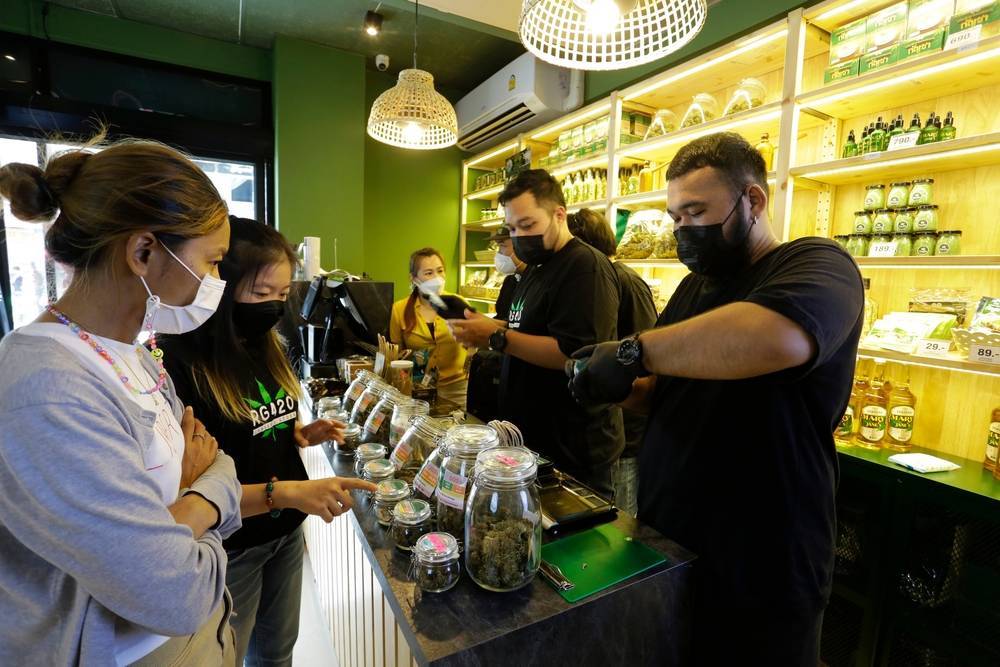In a bold move, Thailand’s Prime Minister, Srettha Thavisin, announced a resolve to revise the country’s cannabis policy.
Thavisin intends to move the country towards only allowing medical cannabis use within six months. This comes after a surge of nearly 6,000 cannabis dispensaries sprouted across the nation following its groundbreaking decriminalisation of cannabis a year ago, making it the first in Asia to do so.
Revisiting the Cannabis Law
Thavisin, in a recent interview in New York, stated, “The law will need to be rewritten. It needs to be rectified.” He emphasised a focus on medical use only, excluding any middle ground for recreational use. The proposed revisions are expected to be implemented within a six-month timeframe.
While a consensus exists among the 11-party coalition led by Thavisin about restricting cannabis, the path forward remains uncertain. The Pheu Thai Party, headed by Thavisin, previously championed a stringent anti-drug stance and pledged to revert the landmark decriminalisation policy. Contrarily, their coalition partner, the Bhumjaithai Party, aims to introduce a bill focusing on stricter industry monitoring but opposes reclassification of the plant as a drug.
Regulatory Vacuum and Industry Reaction
The decriminalisation led to an uncontrolled rise of dispensaries selling a variety of such products. Thai farmers, after registering with the nation’s Food and Drug Administration, have been allowed to cultivate cannabis freely. This liberal approach has sparked concerns among local dispensary owners regarding unrestrained imports and falling prices.
Despite the impending regulations, the cannabis industry remains resilient. Poonwarit Wangpatravanich, president of the Phuket Cannabis Association, believes that more regulation is necessary to avoid a free-for-all situation. However, reclassifying cannabis as a narcotic might drive recreational use underground, leading to even lesser control, warns Rattapon Sanrak, founder of cannabis advocacy group Highland Network.
Eradicating Drug Menace
Prime Minister Thavisin has been vocal about his commitment to “eradicate” drugs from Thai society, planning a decisive reduction within a year. This determination was evident as he presided over an event to destroy confiscated narcotics.
Thailand, a critical conduit for drug trafficking in Southeast Asia, faces a widespread drug problem, particularly in its northeastern and northern regions. The nation is part of a region where the organised crime economy, encompassing illicit drug and wildlife trade, was valued at an astonishing US$130 billion in 2019, as per the United Nations Office on Drugs and Crimes.
Balancing Act
The challenge for Thailand’s government lies in balancing the benefits of medical cannabis while controlling its recreational use. With thousands of dispensaries operating and a burgeoning industry, the next steps taken by Thavisin’s administration will be crucial in shaping the cannabis landscape in Thailand and potentially influencing policies across Asia.
Reflecting on Medical Implications
The situation in Thailand brings to light the broader global conversation around cannabis. The medical community recognises the benefits of cannabis for certain conditions, but the risk of abuse and the potential public health implications necessitate a well-regulated framework. The World Health Organisation plays a vital role in providing guidelines to navigate this complex terrain.
A Closer Look at Asia
Thailand’s cannabis story is particularly significant as it reflects the evolving stance on cannabis in Asia. Observers are closely watching how this development might impact attitudes and policies in neighbouring countries, potentially sparking a shift in the medical and legislative approach to cannabis across the continent.
In Conclusion
Thailand stands at a crossroad, with its leader aiming to rectify the cannabis policy and the industry bracing for change. The decisions made now will not only shape the country’s medical and recreational cannabis use. It could also set a precedent for the rest of Asia. Balancing medical benefits against potential misuse and public health concerns is the tightrope that the Thai government, and indeed the world, is walking. Thailand’s journey will be an important chapter in the global narrative around cannabis regulation.

